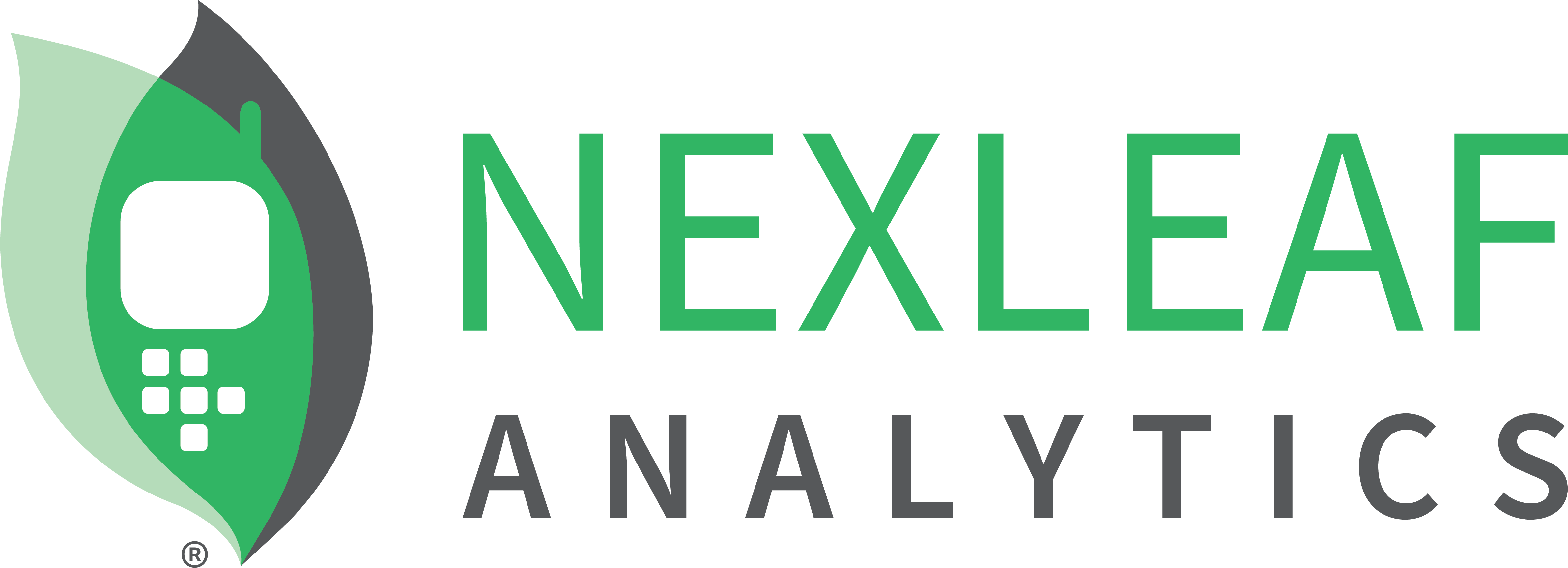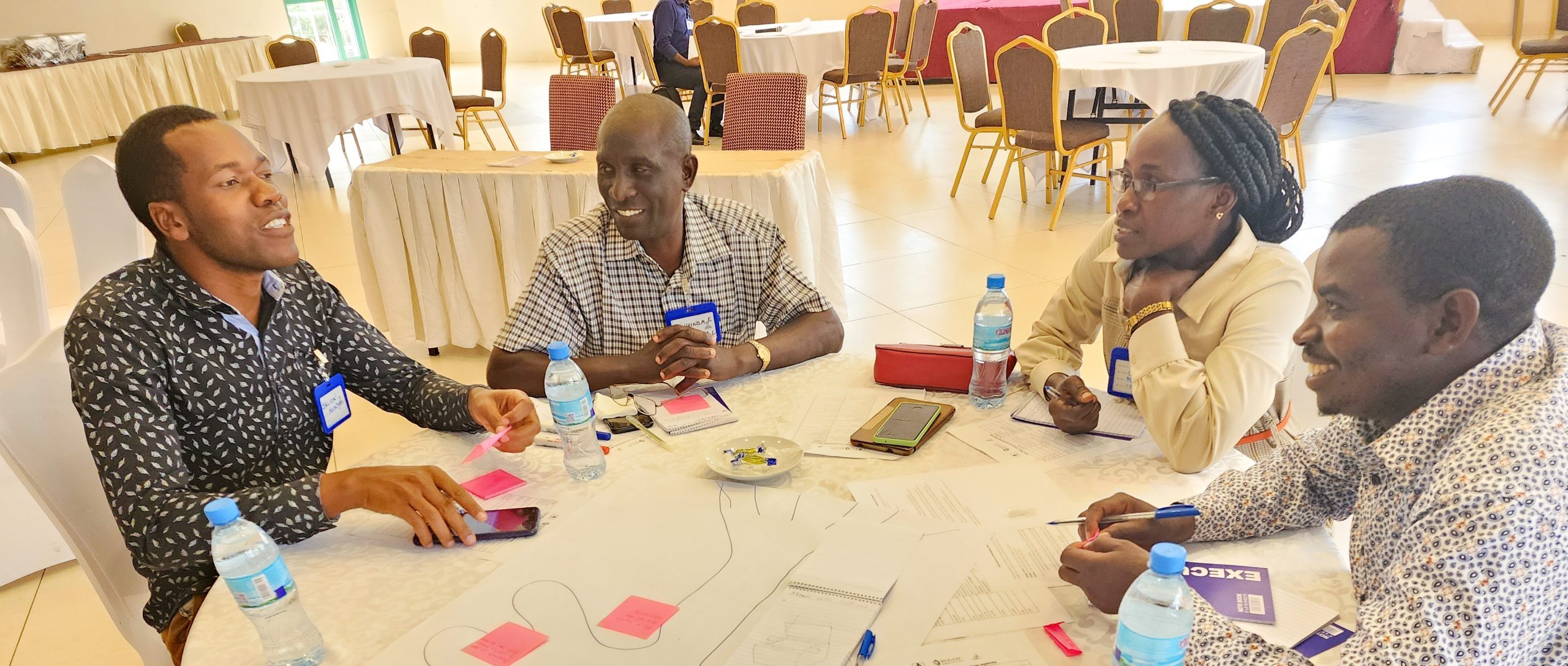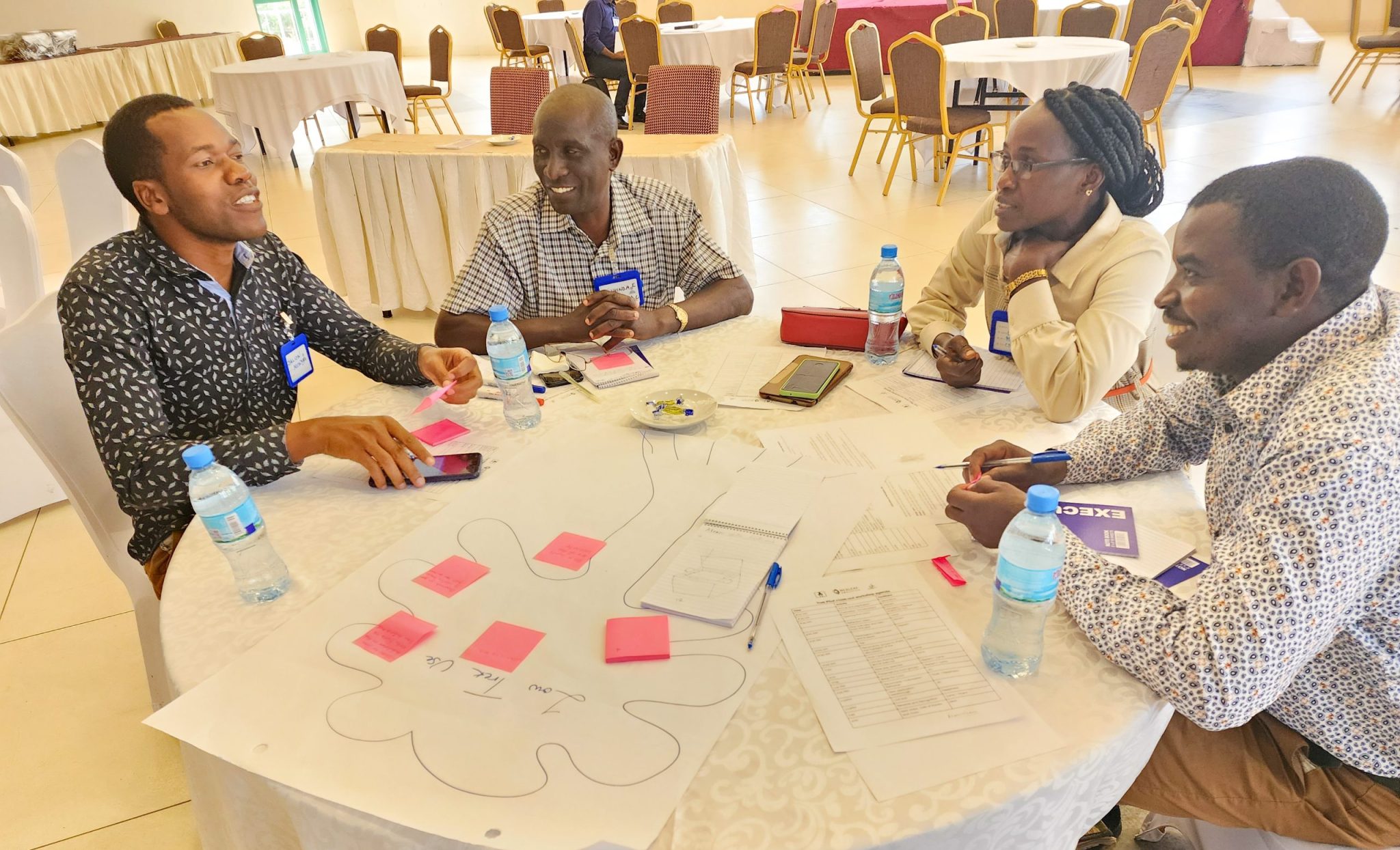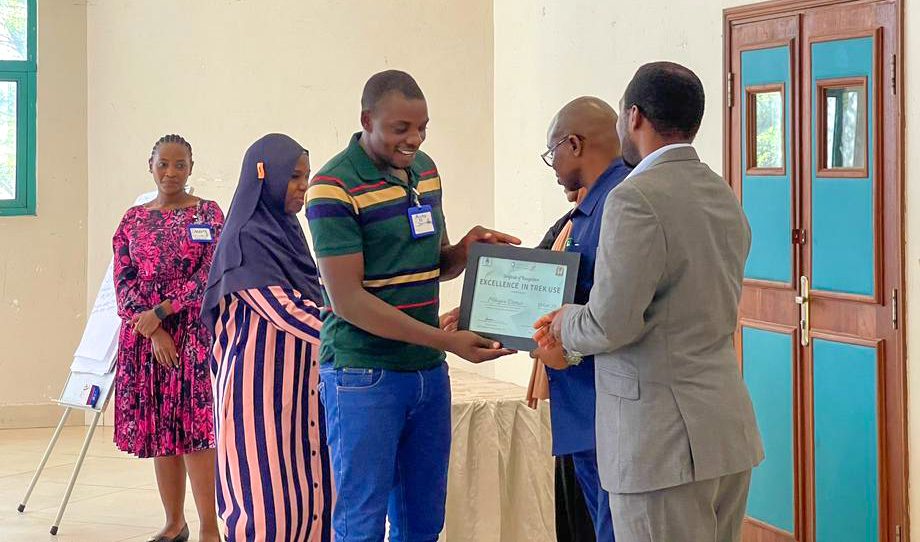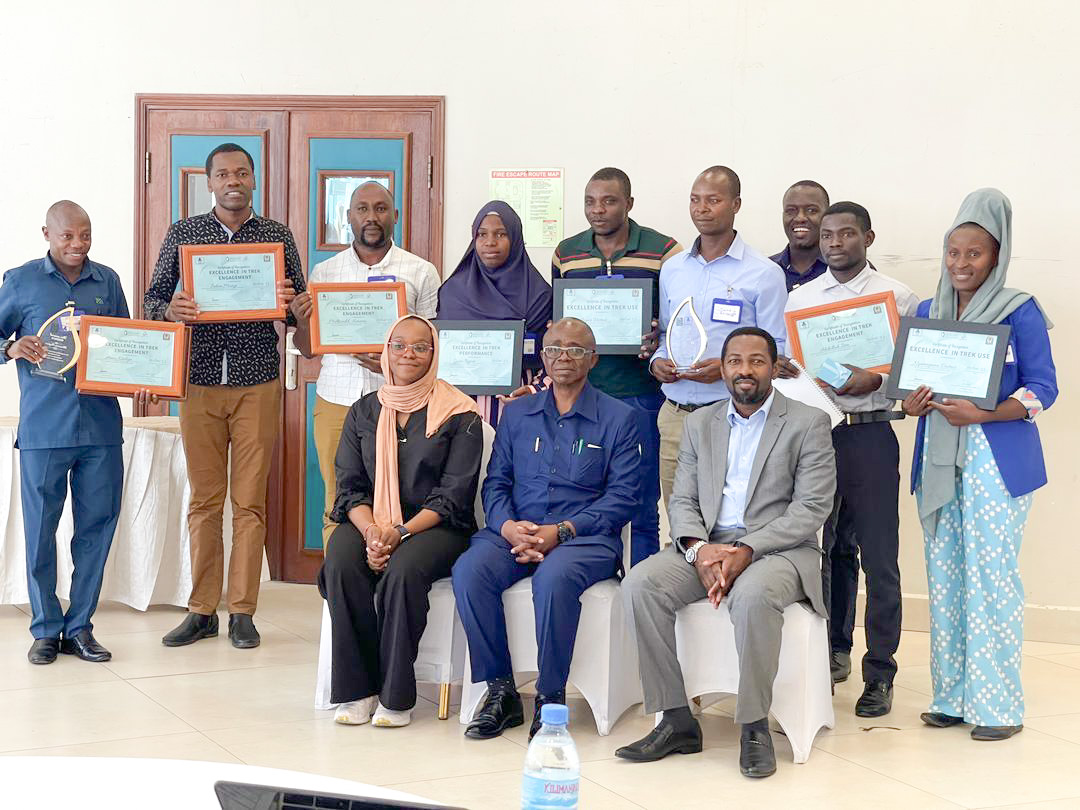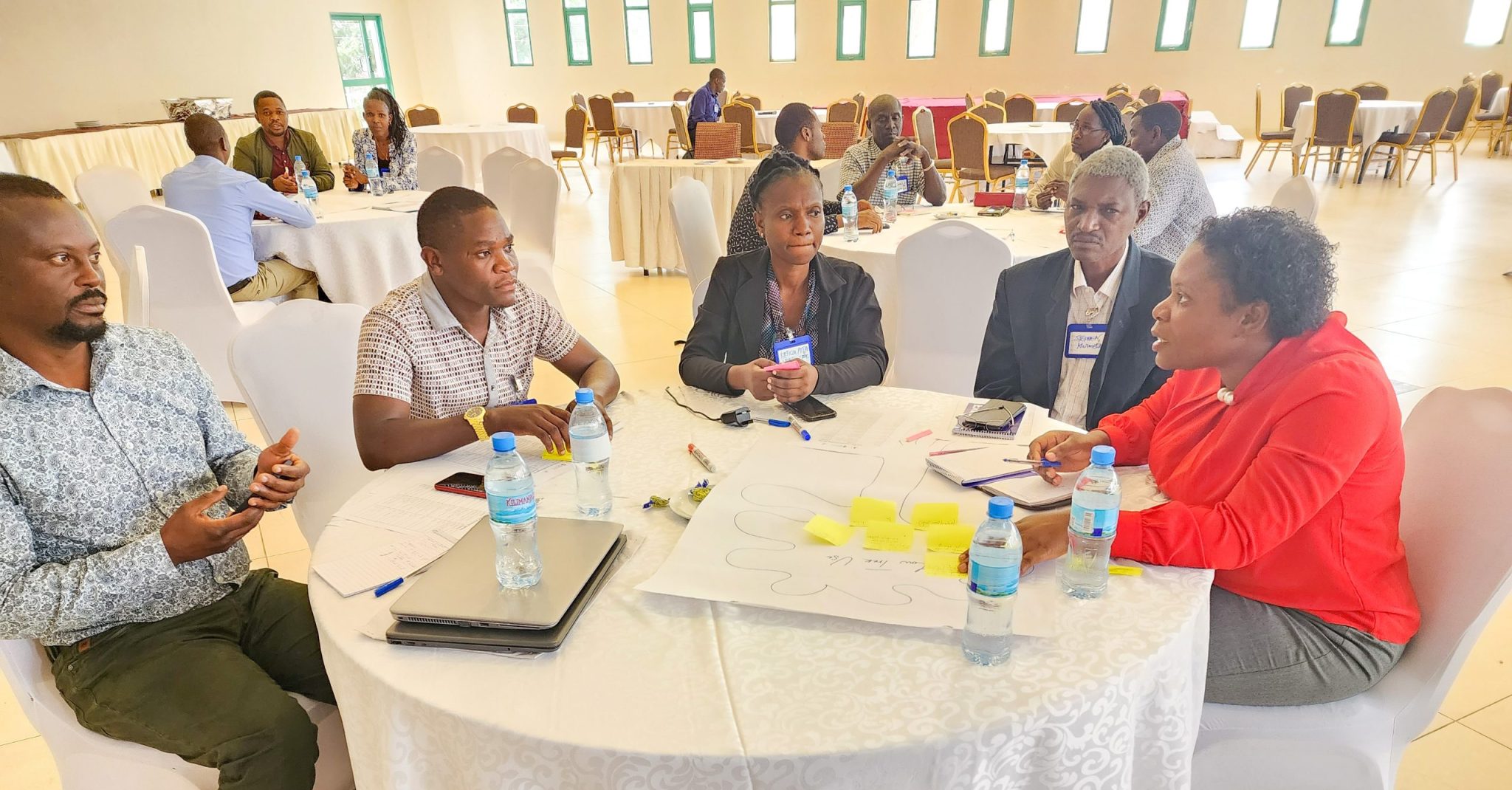Trek Closeout Workshop
Stakeholders at the Trek closeout workshop discuss how digital health technologies for monitoring vaccine temperatures during transportation protect the potency and value of vaccines in the cold chain—
On April 17, national, regional, and local stakeholders in Tanzania came together for a workshop to reflect on their use of Trek to monitor vaccine temperatures during transportation.
This workshop marked the end of an innovative and first-of-its-kind 9-month study to track vaccine temperatures in real-time across two substantial districts in Tanzania, Geita and Mwanza, home to over 6 million people.
Bringing together users and stakeholders from across both regions, the working session allowed participants to review the data gathered from the pilot and share learnings and experiences throughout the duration of the pilot. The meeting also served as a chance to reflect on lingering questions about Trek devices, data, and a future scale-up.
Running from May 2022 to March 2023, the Trek pilot took place in ten district councils in the Mwanza and Geita Regions. During that time, Trek monitored vaccine temperatures during transportation for over 150 distribution days, covering 10,000+ kilometers over 600 hours.
Data from Trek showed a need to monitor vaccine temperatures during transport through the cold chain. Though Geita and Mwanza are different in size, distribution routes, and local conditions, distribution trips in both regions frequently showed that temperatures were too warm or too cold.
Once the final analysis is completed this summer, the Trek program will serve as a tangible model for others on combining innovative technology into routine practices for monitoring vaccine temperatures during transport; and why real-time data can generate cost-effective solutions to protect the cold chain from end-to-end for an entire country.
Following the upcoming scale-up, Tanzania will be the first known low- and middle-income country with end-to-end vaccine temperature monitoring.
In the coming weeks, we will visit project participants in the field for more in-depth insights into the effect of using Trek in their districts and supporting local stakeholders to finalize the pilot data analysis. Stay tuned!
